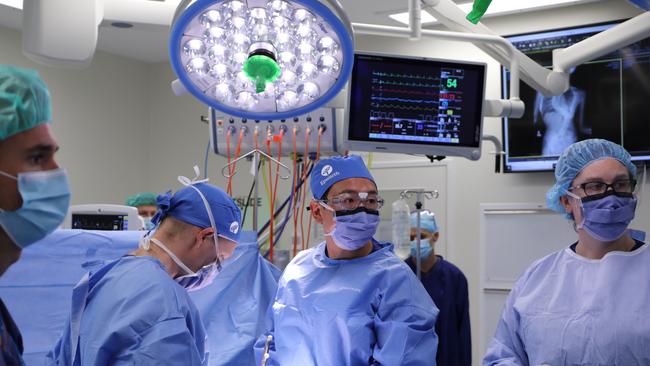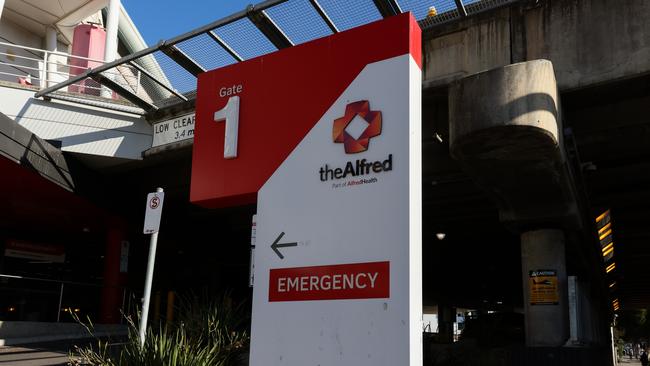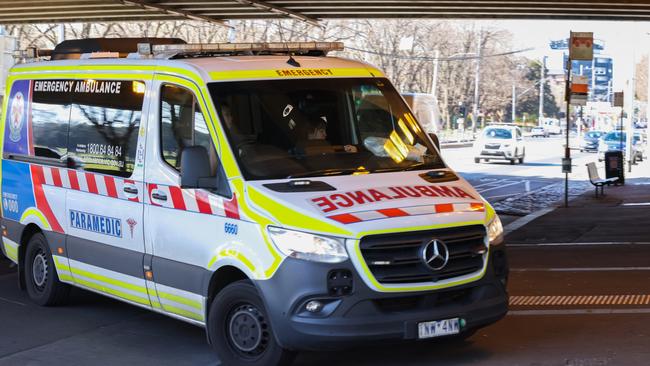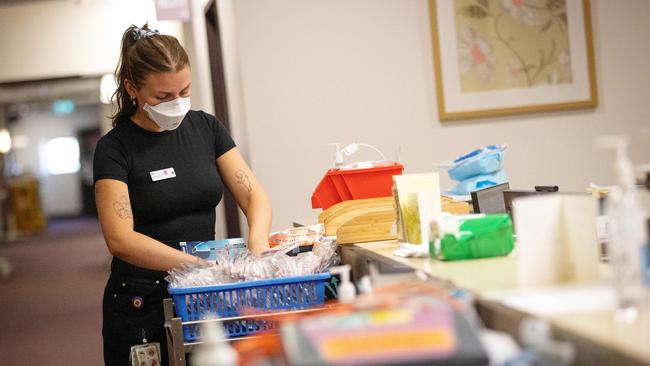Victorian healthcare system in crisis as emergency department crowds hit unprecented levels
Healthcare workers are experiencing the “busiest” shifts of their careers, with overcrowded emergency rooms unlikely to ease anytime soon.
News
Don't miss out on the headlines from News. Followed categories will be added to My News.
Exhausted healthcare workers are seeing the “busiest, crowded” emergency rooms of their careers, as some experts warn the crisis plaguing our healthcare system will continue into 2023.
After years of record ambulance and hospital presentations, peak medical bodies say the demand will not let up until we fix poor primary care access and management of chronic, complex conditions.
Australasian College of Emergency Medicine president Dr Clare Skinner said burnt-out colleagues were facing “some of the busiest, most crowded shifts they’ve ever worked in their lives” with “significant” numbers of patients with Covid or disease exacerbated by Covid.
“I think we do have difficult times ahead,” she said.
She said the pandemic had exposed pre-existing issues, with both the number and complexity of patients increasing for the “last 10 to 20 years” and the healthcare system often operating as separate services than a system.

“Unfortunately we’re not so good at managing complex and chronic disease, and so that’s created a perfect storm,” she said.
“We’ve needed genuine meaningful healthcare reform . . for a long time.”
She called for more flexible shifts and training to improve workforce retention, work to improve the community’s health literacy and digital engagement with health services, and a “genuinely patient centred” system focused on managing complex disease.
Federal health Minister Mark Butler acknowledged the current Medicare system “was outdated with broader structural issues” but said Labor was determined to fix it.
The Royal Australian College of General Practitioners has long said low Medicare rebates threaten bulk-billing – especially for longer consultations – with their most recent report finding less than one in four GPs bulk bill all their patients.

Vice president Dr Bruce Willett said practices were “yet to recover” from the rebate freeze – introduced by Labor in 2013 and continued by the Coalition for several years — and called for a longer consultation rebate increase.
“Patients delay or avoid care and end up with a far more serious condition that could and should have been managed by a GP,” he said.
Victorian Ambulance Union general secretary Danny Hill said “lack of access to GPs and patients in aged care” were the two key drivers of paramedics’ busy workload, with a recent union survey finding 80 per cent of call-outs didn’t need an ambulance.
“People have made three or four different attempts to see a GP,” he said.
“They call triple-0 more out of frustration.”
Australian Medical Association Victoria president Dr Roderick McRae said we would still be facing pandemic consequences in 25 years, from long Covid to the impact of delayed care and poor mental health.
He urged people to ensure their vaccinations were up to date amid a “flood of omicron soup-like variants” and said delays for elective surgery and appointments “would blow out” again.
“Covid is not going anywhere, most people are just acting as if it doesn’t exist,” he said.
“Staff continue to get another version or dose of Covid, that has an impact on them not coming into work.”

Others were more optimistic, including the peak body for Victoria’s public hospitals.
Victorian Healthcare Association deputy chief executive Juan Paolo Legaspi said the virtual emergency department, work to reduce elective surgery wait lists including weekend operations; and the state government’s new priority primary care centres were helping
“If we don’t see more severe variants of Covid, 2023 could be a welcome turning point,” he said.
But he said they still face “immense challenges” this year and said “it was time for the Federal Government to contribute more to Victoria’s recovery efforts”, with more funding for hospitals and primary care access.
Australian Nursing and Midwifery Federation Victorian Branch acting secretary Paul Gilbert praised state government measures, including the nursing and midwifery graduate bonuses and student employment programs.
But he said the pandemic had “highlighted the consequences of an artificially fractured public health system with 80 or more” employers across Victoria while calling for more shift flexibility, such as accepting childcare friendly shift requests, to improve workforce retention.

Federal Health Minister Mark Butler said the Strengthening Medicare Taskforce and $750 million fund would help identify ways to improve primary care.
“The Albanese Government understands the need for a truly 21st century Medicare system that reflects the disease profile of an older population, including a population that has more complex chronic disease,” he said.
“And increased digital health capability.”
A Victorian Government spokeswoman said Australia’s health system was “under pressure like never before” from the pandemic and “a decade of neglect by the former Morrison Government”.
“We urgently need to pay GPs more, increase university places to get a pipeline of new doctors across the nation, attract GPs from overseas to Australia faster – and break down the barriers between primary care and our hospital system,” she said.
Victorian Health Minister Mary-Anne Thomas admitted Victoria’s primary healthcare system was “broken”.
Speaking to the media on Monday, Ms Thomas said the system had been “comprehensively neglected” for almost a decade by former Liberal governments.
“We are looking forward to and working well with the Commonwealth Government now…the time has come to repair primary healthcare,” she said.
“That is the way that we will drive down preventable hospital admissions and until we get that right, our hospital system here in Victoria, and right around the nation will be under unprecedented strides.”
Ms Thomas said the government would also deliver on its promise to allow pharmacists to provide repeat prescriptions and prescribe a limited number of antibiotics in an effort to free up GP clinics.




